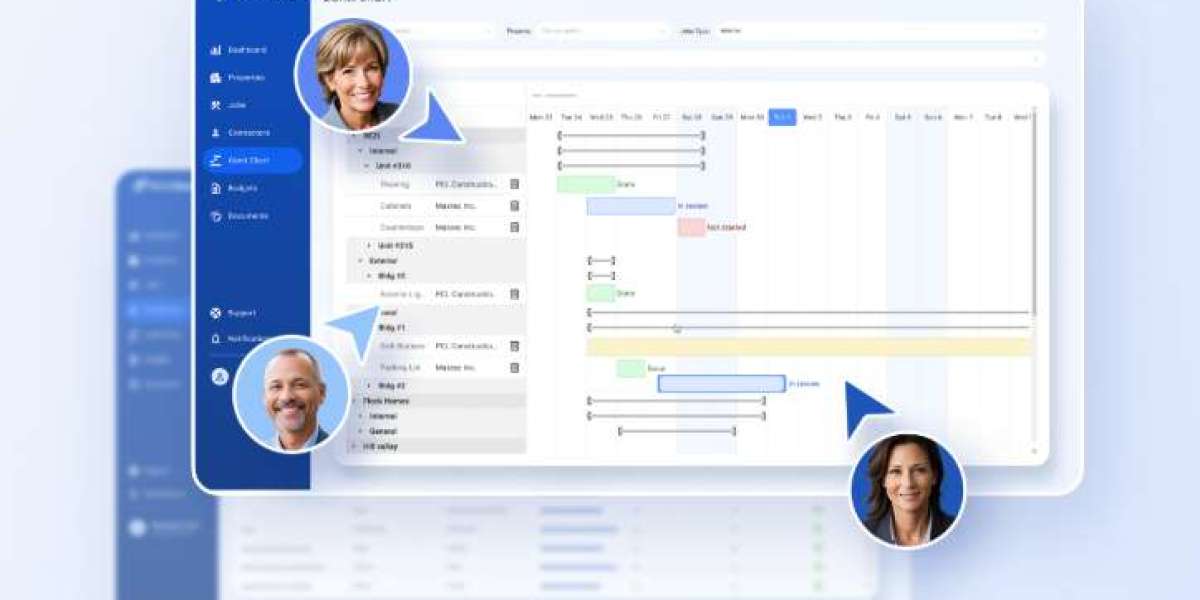In today’s rapidly evolving business landscape, digital transformation is no longer a luxury—it’s a necessity. Companies across industries are embracing digital tools and platforms to streamline operations, improve customer experience, and stay competitive. One of the key enablers of this transformation is the integration of enterprise resource planning (ERP) systems. Among various ERP platforms available today, Odoo has emerged as a leading choice for businesses aiming to accelerate their digital journey.
Odoo, an all-in-one business software, offers a suite of applications that covers every business need—from CRM and accounting to inventory management and human resources. However, the real power of Odoo lies in its ability to integrate seamlessly with other systems and platforms. Odoo integration services play a critical role in maximizing the value of Odoo, enabling businesses to create a unified digital ecosystem.
In this article, we explore why Odoo integration services are essential for digital transformation, the key benefits they bring, and how they contribute to long-term business success.
Understanding Digital Transformation
Digital transformation involves adopting digital technologies to create new—or modify existing—business processes, culture, and customer experiences. It's a holistic shift that goes beyond simply digitizing documents or moving data to the cloud. The goal is to drive efficiency, agility, innovation, and better customer engagement.
To truly achieve digital transformation, businesses must ensure that all systems work in harmony. Disconnected tools and fragmented data can lead to inefficiencies, poor decision-making, and subpar customer experiences. This is where Odoo integration services come into play.
What Are Odoo Integration Services?
Odoo integration services involve connecting the Odoo platform with other business systems, third-party applications, and external services. These integrations enable data to flow freely between systems, reduce manual effort, and ensure real-time synchronization across the organization.
Some common Odoo integrations include:
eCommerce platforms like Magento, Shopify, or WooCommerce
Payment gateways such as PayPal, Stripe, and Authorize.Net
Shipping providers including FedEx, UPS, and DHL
Marketing tools like Mailchimp or HubSpot
Accounting software like QuickBooks or Xero
CRM and project management tools
Custom APIs and legacy systems
Why Odoo Integration Is a Pillar of Digital Transformation
1. Eliminates Data Silos
In many organizations, data is scattered across multiple departments and platforms. This fragmentation creates "data silos," which hinder collaboration and decision-making. Odoo integration services help break down these silos by connecting different systems into one centralized platform. This leads to more consistent, accurate, and accessible data across the organization.
2. Improves Operational Efficiency
Manually transferring data between systems is time-consuming and error-prone. Integration automates data flow, reduces redundancy, and minimizes the risk of human error. For instance, integrating your eCommerce platform with Odoo ensures that order details, inventory updates, and customer data are automatically synchronized in real time.
This automation results in smoother workflows, quicker response times, and significant cost savings—key elements of a successful digital transformation strategy.
3. Enhances Customer Experience
Modern customers expect seamless, personalized interactions with businesses. Integration allows you to gather and analyze customer data from multiple touchpoints—sales, marketing, support, and more. This unified view enables tailored communication, faster service, and improved satisfaction.
For example, integrating a CRM system with Odoo can provide your sales team with a 360-degree view of each customer, helping them deliver more personalized experiences.
4. Supports Scalability and Agility
Digital transformation is not a one-time effort; it’s an ongoing process. As your business grows and evolves, your systems must be able to adapt quickly. Odoo integration services ensure that your tech stack remains flexible and scalable.
You can easily add new tools, features, or modules without disrupting your existing workflows. This agility is critical in today’s fast-paced business environment where customer demands and market conditions are constantly changing.
5. Enables Real-Time Decision Making
Integrated systems provide real-time access to critical business data. Decision-makers can monitor performance, track KPIs, and respond to challenges immediately. With Odoo integration, your dashboards and reports are always up-to-date, empowering leaders to make informed choices that drive growth and innovation.
6. Reduces IT Complexity and Maintenance
Managing multiple standalone systems can be a nightmare for IT departments. It often requires different skill sets, leads to compatibility issues, and increases maintenance costs. Integrating these systems with Odoo simplifies the IT environment, reduces the need for disparate solutions, and lowers long-term support costs.
Moreover, leveraging professional odoo development services ensures that these integrations are robust, secure, and tailored to your specific needs.
Key Business Areas That Benefit from Odoo Integration
1. Sales and Marketing
CRM Integration: Align your sales and marketing teams by connecting Odoo with popular CRM platforms.
Email Marketing Tools: Automate email campaigns and track engagement by syncing Odoo with tools like Mailchimp.
2. Finance and Accounting
ERP & Accounting Software: Ensure accurate financial data by integrating Odoo with accounting systems like QuickBooks or Xero.
3. Inventory and Supply Chain
eCommerce Integration: Automatically update inventory levels, process orders, and manage returns.
Shipping Providers: Generate shipping labels, calculate rates, and track deliveries directly from Odoo.
4. Human Resources
HR Platforms: Streamline recruitment, onboarding, and payroll by integrating HR tools with Odoo.
5. Customer Support
Helpdesk and Ticketing Systems: Provide timely support by syncing customer queries and tickets into Odoo.
Real-World Use Cases of Odoo Integration
Case Study 1: Retail Business Transformation
A mid-sized retail company used separate systems for inventory management, sales, and accounting. By integrating all systems with Odoo, they achieved real-time inventory tracking, automated order processing, and consolidated financial reporting. The result? A 30% reduction in operational costs and a 25% boost in customer satisfaction.
Case Study 2: Manufacturing Efficiency
A manufacturing firm integrated its legacy production software with Odoo. This allowed them to automate production planning, track raw material usage, and generate accurate forecasts. Lead times were reduced by 20%, and waste was minimized—crucial improvements in their digital transformation journey.
Why You Need Professional Odoo Development Services
While Odoo is highly versatile, successful integration requires technical expertise, strategic planning, and a deep understanding of your business processes. Partnering with experts in odoo development services ensures:
Customized integration solutions tailored to your unique requirements
Proper mapping of data across systems to avoid inconsistencies
Secure APIs and middleware development for stable connections
Minimal downtime during deployment
Ongoing support and maintenance to ensure long-term success
Professional developers also help future-proof your integrations by implementing scalable architectures that grow with your business.
Common Challenges in Odoo Integration and How to Overcome Them
1. Data Inconsistency
Mismatched data formats or incomplete records can lead to errors. Solution: Perform data audits and cleansing before integration.
2. System Incompatibility
Legacy systems or outdated platforms may not support direct integration. Solution: Use middleware or custom APIs developed by experienced Odoo professionals.
3. Security Concerns
Data breaches and unauthorized access are serious risks. Solution: Implement secure authentication, encryption protocols, and role-based access controls.
4. Lack of In-House Expertise
Not all organizations have the necessary technical skills. Solution: Outsource to reliable odoo development services providers with proven expertise.
Final Thoughts
Digital transformation is reshaping the way businesses operate, compete, and grow. To fully realize its potential, organizations must ensure their systems are connected, data is unified, and processes are automated. Odoo integration services offer the tools and expertise needed to build such a cohesive digital ecosystem.
By integrating Odoo with other business-critical systems, you can eliminate inefficiencies, enhance customer experience, and make smarter decisions faster. Whether you’re a small business or a large enterprise, investing in professional odoo development services is a strategic move that will pay dividends in agility, productivity, and long-term growth.







